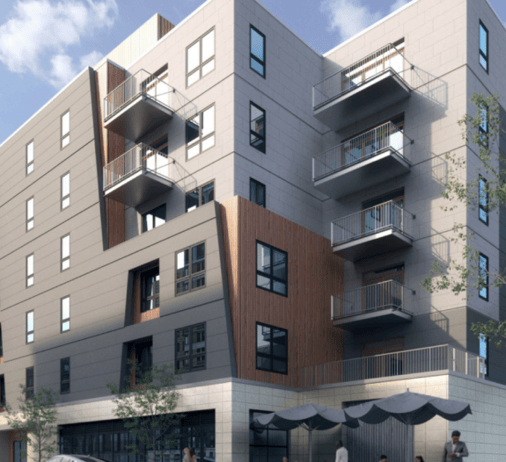Owning a Home - Making the Move From Renting to Owning
Renting has its benefits—as does owning a home. As a tenant, if a pipe bursts or an appliance goes out, it's your landlord's responsibility to fix them. With homeownership, the responsibility is on you.
Owning a home, however, offers a greater degree of stability. You pay the same monthly payment for the life of the mortgage, providing you peace of mind. Renting is not the same -- your landlord can opt not to renew your lease, raise the rent, as well as sell the building out from under you, thereby evicting you.
Although it's a volatile time, there are many reasons why so many first-time home buyers continue to weigh the benefits of owning vs. renting. Owning a home, having the freedom of choice on how to decorate, enjoying stability, as well as building equity are all very alluring reasons, even in these challenging times.
Changing from renting to owning is one of the most important financial decisions in one's life; transitioning from renting to owning is a big step, and there are a lot of moving parts along the way.

Major Factors to Consider When Owning a Home
With mortgage rates at an all-time low, you may be enticed to capitalize on those great rates and buy a home in 2021. But is buying a home now the right move for you? It's important to know what to expect along the way. Keep in mind that as housing demands start to rise, the shortage of houses will increase exponentially.
If your rent is 20% or more above what a mortgage payment with escrowed taxes would be, it might make sense to buy now. But your decision should involve taking a thorough look at all the risks involved on either side, for example:
- How long do you plan on living in that location?
- What is the projected increase in housing prices over the next 2-3 years?
- How much will other homeownership costs add to your monthly expenses?
- Is your landlord selling the property?
- How much has your rent increased over the last 3-4 years?
- Will mortgage rates rise?
The rising cost of living and inflation-related challenges, along with stricter mortgage qualifications, can also have an impact on your decision. Stringent mortgage qualifications, combined with high down payments as well as higher home prices, will make buying a home a more challenging choice.
Renting also allows potential homebuyers the opportunity to save more in 2021/2022 and allows them to better-afford a nicer home in 2023. New construction starts are expected to start growing again once the pandemic is under control.
What's Up for Home Buyers in 2021?
- Fixed mortgage rates are still falling
- Home listings have fallen to record lows
- Home prices are high yet stable
- New construction housing is sluggish
- U.S. economy is in shambles and may take longer than anticipated to recover
- Unemployment rates are at a historic high
Don't be rushed.
If you face job insecurity, or there seems to be a shortage of ideal home listings, be patient -- don't jump the gun and run the risk of losing your investment. Be patient throughout the process—make informed decisions by researching the mortgage process, neighborhoods that interest you, and review your budget thoroughly before you begin your home search.
One of the biggest things to prepare for as you transition from renting to buying is the associated costs.
As a renter, your typical costs and fees are:
- Monthly rent
- Security deposit
- Utilities
As a homeowner, your typical ongoing costs include:
- Monthly mortgage
- Property taxes
- HOA fees
- Mortgage insurance
- Upkeep of your home
Lifestyle changes
Homeownership will change you—you can find your place in your community and settle down. With freedom comes responsibility. From designing the interior to landscaping, the choices are all up to you. Equally important is that all the maintenance, repairs, and replacements will be up to you as well.
Besides the ongoing maintenance costs, there are other unexpected costs that go with buying a home, for instance, new furniture, which can add up quickly. And don't forget the moving costs, especially if moving between states.
Building equity
What is equity? Equity is the difference between the property's marketable value and what you owe. As you pay down on the loan, the more equity you develop. The equity continues to grow. Later, you can use it toward a second home, retirement, borrow it for home improvements, etc.
As a homeowner, you'll start building equity almost immediately. Depending on the area you choose to live, and the supply and demand of housing, your equity can build up rapidly. Owning a home builds financial stability.
Ask questions
Working with a trustworthy buyer's agent could help tremendously. The transition from renter to homeowner comes with many questions—having someone you can trust that has your best interest in mind can make your journey toward homeownership much easier.
Here are some questions to ask yourself
- Do you have the 20% down payment?
A 20% down payment is not always required--some lenders will let you put down less. But you'll be hit with a private mortgage insurance requirement, which is an insurance policy meant to protect your lender.
- Are home prices inflated where you want to live?
Limited housing inventory coupled with outstanding lending rates has caused inflation in the housing market. Perform your due diligence and do the research. This may not be the right year to buy--it could make sense to wait a year and see if the housing inventory opens up, helping drive prices down.
- Consider the costs of homeownership
As mentioned earlier, owning a home isn't just paying a mortgage vs. rent. If your monthly budget is stressed at present, it might be worth continuing to pay rent for another year and put off buying a home until your financial situation improves. This especially holds true if your job isn't stable. Weigh your options before making your choice.
CharlesGate Realty is a local Boston, MA company servicing the Greater Boston metro area and Eastern Massachusetts market area. Contact us today to schedule a free consultation with one of our agents to learn more about your options.

